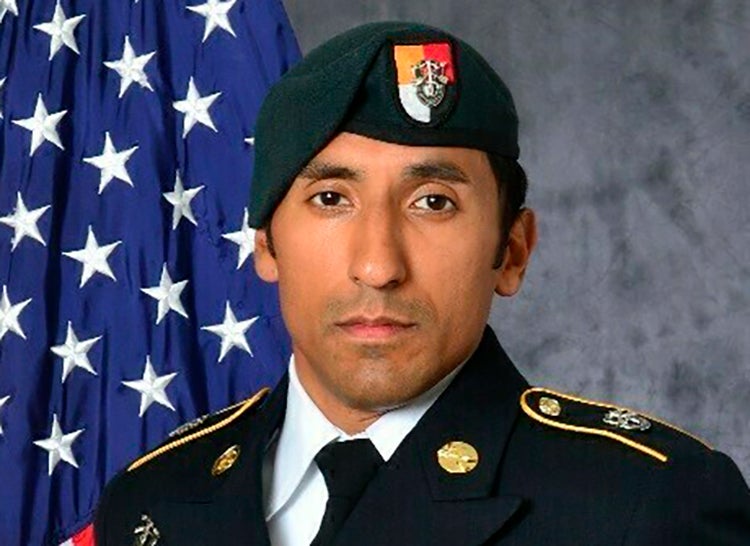SEAL pleads guilty to role in hazing death of Green Beret
A U.S. Navy SEAL has pleaded guilty to involuntary manslaughter for his role in the hazing death of a U.S. Army Green Beret in Africa

Your support helps us to tell the story
From reproductive rights to climate change to Big Tech, The Independent is on the ground when the story is developing. Whether it's investigating the financials of Elon Musk's pro-Trump PAC or producing our latest documentary, 'The A Word', which shines a light on the American women fighting for reproductive rights, we know how important it is to parse out the facts from the messaging.
At such a critical moment in US history, we need reporters on the ground. Your donation allows us to keep sending journalists to speak to both sides of the story.
The Independent is trusted by Americans across the entire political spectrum. And unlike many other quality news outlets, we choose not to lock Americans out of our reporting and analysis with paywalls. We believe quality journalism should be available to everyone, paid for by those who can afford it.
Your support makes all the difference.A U.S. Navy SEAL pleaded guilty Thursday to involuntary manslaughter for his role in the hazing death of a U.S. Army Green Beret while the men were stationed in Africa.
Chief Petty Officer Tony DeDolph a member of the elite SEAL Team 6, also offered a detailed account of the night in which he and other servicemembers initiated a prank known as a “tape job” on Army Staff Sgt. Logan Melgar
DeDolph told a military judge that the men were trying to teach Melgar a lesson over perceived slights while they served in Mali in 2017. But the SEAL said they were soon “in a state of shock and deeply disturbed” after the duct-tape-bound Melgar remained unresponsive for several minutes.
DeDolph said his role in the prank was to cause Melgar to temporarily lose consciousness by placing him in a martial-arts-style chokehold. DeDolph said the “rear naked choke” restricts blood flow in the neck and is used in the military.
“I effectively applied the chokehold as I have done numerous times in training, with combatants and has been done to me,” DeDolph said.
Melgar lost consciousness in about 10 seconds, but failed to wake up after the typical 30 seconds, the SEAL said.
“Usually by that time, the individual has gotten up," DeDolph said. “And he did not.”
DeDolph pleaded guilty inside a military courtroom at a Navy base in Norfolk, Virginia. He is the third of four U.S. service members — two SEALs and two Marines — to face a court martial for the death of Melgar, a Texas native.
The case has pulled back the curtain on misconduct among some of America’s most elite service members, while offering a brief window into how some have addressed grievances outside the law.
Charging documents don’t state why the service members were in Bamako, Mali. But U.S. Special Forces have been in Africa to support and train local troops in their fight against extremists.
Adam Matthews, a SEAL who pleaded guilty for his role in Melgar's death in 2019, testified previously that two Marines felt Melgar abandoned them while driving in separate vehicles in an unsafe place. DeDolph said Wednesday that Melgar “had ditched” service members as a “prank.”
The idea of pranking Melgar in return started off as a joke, but the talk escalated throughout the night, DeDolph said.
“It was more of like a pack mentality, group decision," he said.
DeDolph said the plan included breaking down Melgar's door with a sledge hammer for effect, binding him with duct tape and performing the chokehold. Someone was supposed to dance around in a gorilla mask. And video of the incident was supposed to be taken.
Besides involuntary manslaughter, DeDolph pleaded guilty to hazing, conspiracy and obstruction of justice for trying to cover up the cause of Melgar's death. His case moves into the sentencing phase next week, during which prosecutors and defense attorneys can call witnesses before a jury of his peers.
DeDolph faces a maximum sentence of 22 1/2 years in prison, losing rank and dishonorable discharge.
Prosecutors have recommended an undisclosed sentence in a pretrial agreement. The jury will also recommend a sentence. A convening authority within the military will chose the lesser of the two.